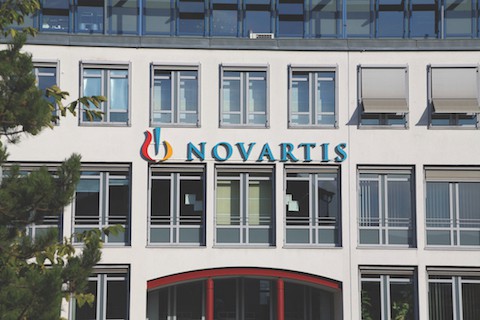
Novartis’ oral therapy iptacopan has scored positive results in a phase 3 trial evaluating its benefit as monotherapy in treatment-naïve patients with the rare blood disorder paroxysmal nocturnal haemoglobinuria (PNH).
According to the data, presented at the European Hematology Association 2021 virtual congress (EHA), treatment with 12 weeks of iptacopan was generally well tolerated and led to ‘rapid and durable’ transfusion-free improvement of haemoglobin levels in the majority of PNH patients.
Specifically, all patients who completed at least 12 weeks of iptacopan treatment achieved the primary endpoint of 60% reduction in their lactate dehydrogenase (LDH) levels – a biomarker of intravascular haemolysis.
On top of that, all patients remained transfusion-free through the 12 week study period, with the exception of one patient who received a single red blood cell (RBC) transfusion.
Novartis added that patients also showed improvements in other biomarkers of haemolysis – the process whereby red blood cells rupture and release their contents – as well as a marked increase in the proportion of PNH-type RBCs.
“PNH is a rare and life-threatening blood disorder with often debilitating symptoms,” said John Tsai, head global drug Development and chief medical officer, Novartis.
“New treatment options are needed, and these positive results further strengthen the profile of iptacopan as a promising oral monotherapy. We are excited to continue to explore the potential of iptacopan as new standard-of-care treatment for PNH in the ongoing phase 3 study,” he added.
Iptacopan is an oral factor B inhibitor and is in development not only for PNH, but also for C3 glomerulopathy (C3G) and a number of other renal conditions with complement system involvement.
This includes IgA nephropathy (IgAN), atypical haemolytic uremic syndrome (aHUS), and membranous nephropathy (MN).
Novartis also recently announced that iptacopan met the primary endpoint in a phase 2 study in IgAN, where the drug led to reduction of the protein in the urine (proteinuria) – an ‘increasingly recognised’ surrogate marker correlating with progression to liver failure.
At the highest dose of 200mg twice daily, a 23% reduction in proteinuria was predicted with iptacopan treatment compared to placebo at 90 days.
Last December, the US Food and Drug Administration (FDA) granted iptacopan a breakthrough therapy designation for the treatment of PNH and a rare paediatric disease designation for C3G.
The European Medicines Agency (EMA) has also granted iptacopan a PRIME designation in C3G, as well as an orphan drug designation for the therapy in IgA nephropathy (IgAN).




